Strategic Analysis Caucasus Brief
Bi-weekly review (05.12 – 18. 12. 2022)
Tomáš Baranec
Armenia
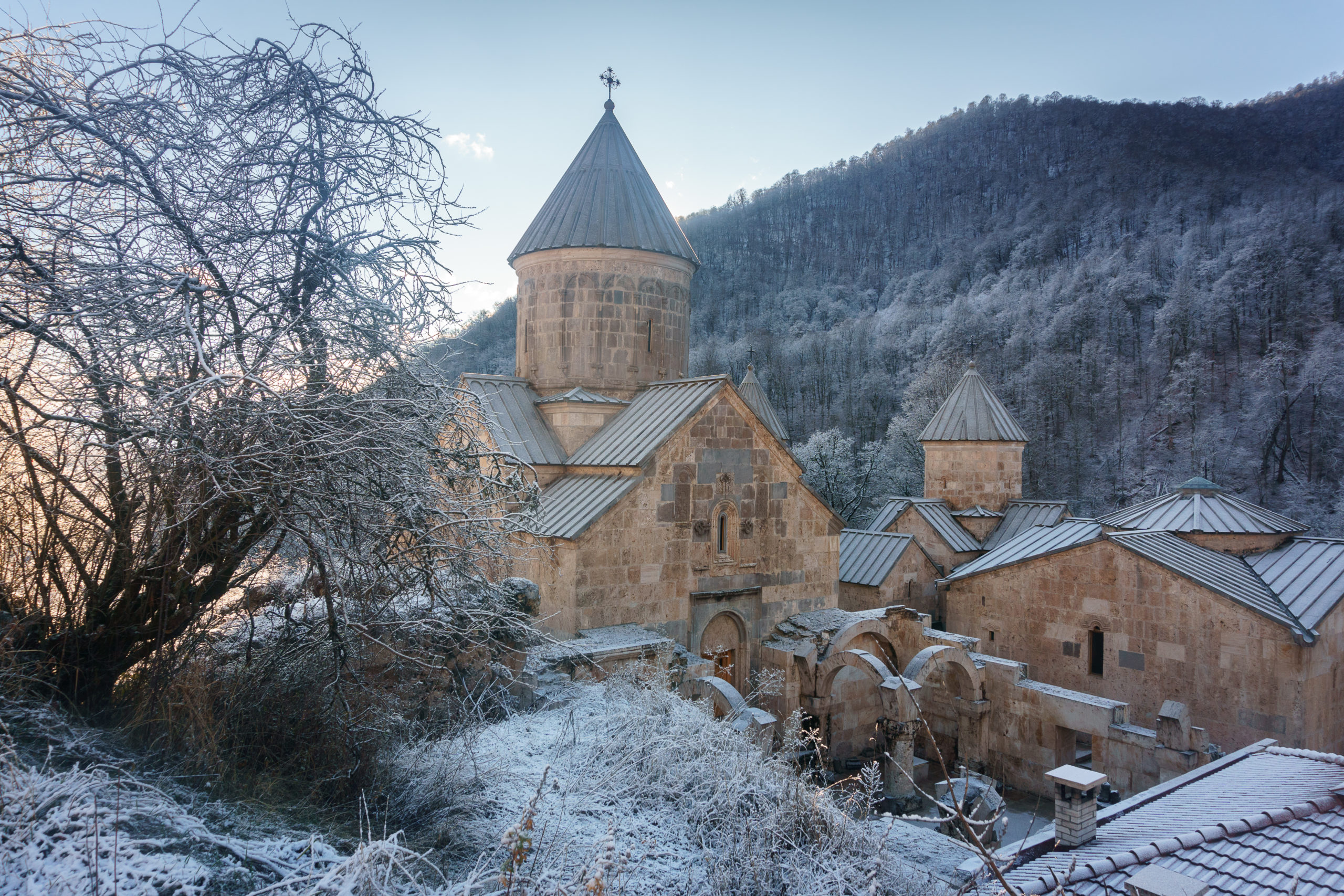
Haghartsin Monastery Armenia in Winter. Photo: Stepanov Ilya/ Shutterstock.com
Armenia to create the Foreign Intelligence Service
The Armenian Government has greenlighted the establishment of the Foreign Intelligence Service. A relevant decision was approved at a sitting on December 8. The 2021-2026 Government Action Plan stipulates the imperative to have a foreign intelligence service. Given the problems in the process of providing information by intelligence agencies during the Artsakh wars of 2016 and 2020, and taking into consideration the need to improve the efficiency and quality of intelligence information, the Government believes Armenia has an imperative to have a new quality intelligence and to form its own intelligence school to ensure the continuity of intelligence activities and the improvement of the field.
According to the Deputy Minister of Justice Grigor Minasyan, the bill proposes to create a new Foreign Intelligence Service – a subordinate body to the Prime Minister. “Given that the Defense Ministry and the National Security Service have agencies with similar functions in which the service is military, a political decision was made to create a new type of state service. Creating the Foreign Intelligence Service will contribute to raising the functional efficiency of the National Security Service, focusing on the directions of counter-intelligence and counter-terrorism. It will also allow responding to global and regional challenges more flexibly and adequately,” he said.
PM Nikol Pashinyan, in his turn, mentioned that amidst the significant dynamic changes in foreign intelligence forms and methods, Armenia urgently needs to transform and develop its capacities according to contemporary challenges and demands. “Nothing will change in all the intelligence services currently operating until we are convinced that the newly created foreign intelligence service can absorb the functions currently performed by the National Security Service’s Intelligence Department,” Pashinyan said. Armenia’s National Security Service (NSS) says the country is the only one lacking such an agency in the region. The bill will now be sent to the Parliament for ratification.
Sources
-
GHAZANCHYAN Siranush, Public Radio of Armenia, „Armenia to establish Foreign Intelligence Service“, https://en.armradio.am/2022/12/08/armneia-to-establish-foreign-intelligence-service/
Caucasus Watch, „Armenia to Create Foreign Intelligence Service“, https://caucasuswatch.de/news/6698.html
Turkish and Azerbaijani armies held drills near the Iranian border amid tension
The drills, conducted at the turn of November and December, included a crossing of the river that forms the Azerbaijan-Iran border, mirroring the threat that Iran’s armed forces had made weeks earlier, reports Eurasianet.org. Exercises followed Iranian drills on the other side of the border six weeks earlier. They have been framed as an explicit rebuttal to those drills – down to the most provocative element, a practice crossing of the river that forms the border between the two countries.
Turkey’s defense ministry reported that the drills began on November 20. Still, they were only announced on December 5, when Azerbaijan’s defense ministry published a press release, photos, and a video including the deployment of a pontoon bridge over a river and a tank crossing it. That was an obvious retort to the Iranian armed forces’ simulated crossing of the same river in the other direction in late October.
“The Azerbaijani Army also took care of the pontoon bridges, which may be necessary for crossing the river Aras, which our Iranian neighbors recently tried to use as an element of intimidation – saying that in a moment we will cross and go further to Azerbaijan,” wrote the website Caliber, connected to Azerbaijan’s defense ministry. “The water obstacle will not stop Azerbaijani soldiers,” Caliber continued. “By the way, the video of the exercises perfectly shows it all – we advise the enemies of our country from the other side of the Aras to watch it.”
The exercises involving the military personnel of different types of troops, combat and special engineer-sapper equipment, as well as military aviation vehicles of the Azerbaijan Army and the Turkish Armed Forces were held in Baku city, as well as the territories of Astara, Jabrayil, and Imishli regions, local media reported, citing the press service of the Azerbaijani Defence Ministry.
The recent exercise follows the flight-tactical training the countries conducted earlier this year in Azerbaijan.
Sources:
- KUCERA Joshua, Eurasianet.org „Azerbaijan and Turkey in joint military exercises on Iranian border“, https://eurasianet.org/azerbaijan-and-turkey-in-joint-military-exercises-on-iranian-border
- AzeMedia, „Azerbaijani, Turkish forces launch joint drills on Azerbaijan’s southern borders“, https://aze.media/azerbaijani-turkish-forces-launch-joint-drills-on-azerbaijans-southern-borders/
- Daily Sabah, „Turkish, Azerbaijani forces hold joint drill in Azerbaijan“, https://www.dailysabah.com/politics/diplomacy/turkish-azerbaijani-forces-hold-joint-drill-in-azerbaijan
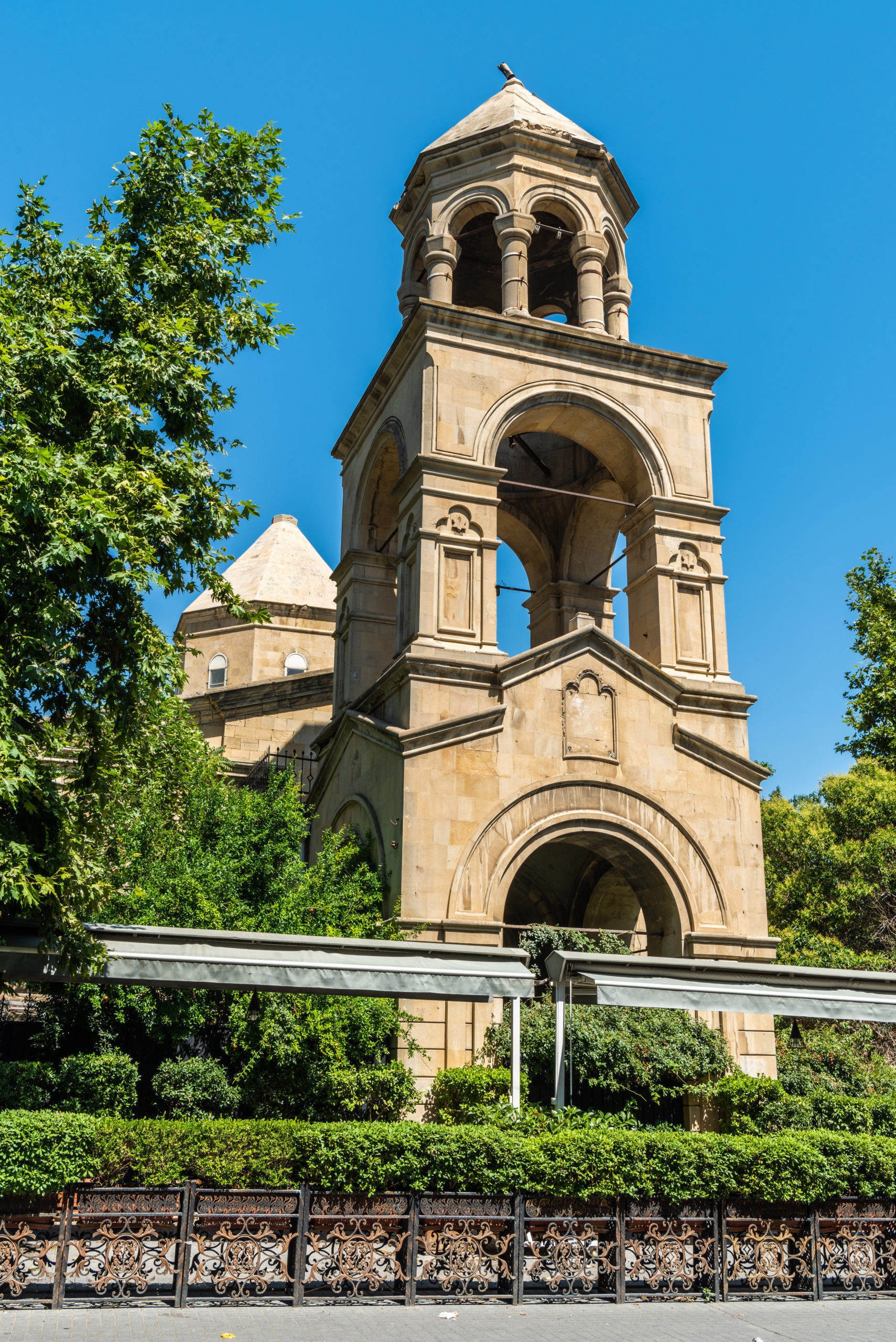
Baku, Azerbaijan. Photo: Evelyn/ Shutterstock.com
Azerbaijani Parliament adopts controversial draft law „On Political Parties“ in the third reading
Azerbaijani Parliament adopted the draft law “On Political Parties” in the third reading on December 16. According to critics, it will further restrict what is left of local opposition. As Turan.az writes, the draft law provides for increasing the number of party members from 1,000 to 5,000, and such a proposal was assessed negatively by the Venice Commission of the Council of Europe back in 2011.
“Therefore, the reintroduction of the requirement of 5,000 members in the bill and the addition of a provision to deregister parties with less than 4,500 members is a restriction on the right of citizens to participate in the political life of countries, which runs counter to international standards, democratic principles, political pluralism,” the statement Party of People’s Front of Azerbaijan (PPFA) said.
Also, the PPFA criticised the norm of the party register for including data on all members of the organisations. “In considering the practice of constant pressures and police surveillance of opposition members, the authorities are thus given ample opportunity to harass activists through law enforcement agencies with their personal details,” the PPFA statement further said.
Articles 3.3 and 4.7 of the bill prohibit unregistered parties from engaging in political activities. This provision makes it possible to prevent the establishment and formation of new political parties that might compete with the incumbent Government, contrary to the provisions of the European Convention on Human Rights and the Azerbaijani Constitution.
Article 12.3.3 makes the participation of political parties in elections compulsory, which deprives them of the right to boycott, and violates the right to freedom of choice. “For these reasons, the submitted draft law has a reactionary content and aims to restrict the activities of political parties, especially the real opposition, and results in the de facto elimination of political pluralism.
The PPFA calls on the authorities not to adopt this Law on Political Parties and to send the draft law to the Venice Commission of the Council of Europe for the expertise and consider its recommendations,” further noted. The PPFA calls on the international community not to remain indifferent to removing the real opposition from the legal field of Azerbaijan.
In late November 2022, the Azerbaijani parliament published an updated version of a draft law on political parties. The first version of the law was met with indignation by society, and in the new version, the requirements for political parties have been relaxed. The leaders of Azerbaijani opposition parties say that despite the changes, the bill is still reactionary.
Thus, according to the document, “at least fifty citizens” can act as party founders. The first version had “at least 200 citizens”. Another requirement that those intending to found parties must have been resident in Azerbaijan for twenty years has also been done away with.
Sources:
- Turan.az, “PPFA calls on Azerbaijani authorities not to adopt a new law on political parties“, https://www.turan.az/ext/news/2022/12/free/politics_news/en/12699.htm
- JAM News, Azerbaijan softens requirements in draft law “On political parties”, https://jam-news.net/azerbaijan-softens-requirements-in-draft-law-on-political-parties/
- Report.az, „Azerbaijani Parliament adopts draft law ‘On Political Parties’ in third reading“, https://report.az/en/milli-majlis/azerbaijani-parliament-adopts-draft-law-on-political-parties-in-third-reading/
Lachin corridor blocked by Azerbaijani ‘eco-activists’
The Lachin corridor has been blocked since around 10:30 on December 12, after Azerbaijani activists erected pavilions at its entrance near the city of Shusha (Shushi). Later the supply of natural gas to the unrecognized Nagorno-Karabakh was cut by Baku for several days. As OC Media writes, this is the second time that traffic between Armenia and de facto Nagorno-Karabakh has been suspended this month, with Azerbaijanis in civilian clothes previously blocking the road for three hours on December 3.
The protesters, who have gathered in front of a Russian peacekeeping post, accused the peacekeeping forces stationed in the region of failing to allow Azerbaijani ecologists to monitor mining activity in Aghdara (Martakert). They demanded that the commander of the Russian peacekeeping forces, General Andrey Volkov, speak to them and hold placards condemning the inaction of the stationed peacekeepers.
Azerbaijan’s Ministry of Foreign Affairs has repeatedly called on the Russian peacekeeping forces to allow Azerbaijani officials and specialists to enter the territory currently under the control of Russian peacekeepers to assess alleged mining activity and for the peacekeepers to “prevent the illegal exploitation of natural resources” in that territory.
Azerbaijan alleges that there has been illegal mining in the region, “, especially in the Gizilbulag gold and Damirli copper-molybdenum deposits”, and claims that the mining has had negative ecological consequences. Later, Azerbaijani officials introduced new demands: that Azerbaijan is allowed to establish its customs and border control posts on the Lachin Corridor, the only road connecting Nagorno-Karabakh to Armenia and the rest of the world. “The Lachin road has recently become a means of transporting illegal weapons and criminal activity,” said Tural Ganjaliyev, an Azerbaijani member of parliament representing Karabakh, at a December 16 session.
Meanwhile, the gas supply to the region had been cut from December 13 to December 16, leaving tens of thousands of residents without the means to heat their homes. On December 14, Armenia appealed to the European Court of Human Rights to demand that it apply measures against Azerbaijan to unblock the road. The Armenian representative at the court, Eshishe Kirakosyan, reported that the ECHR had ruled that it had given Azerbaijan until December 19 to reply, after which it would make a decision.
On December 13, the European Union and the United States called on Azerbaijan’s authorities to ensure free movement along the Lachin Corridor, “Closure of the Lachin Corridor has severe humanitarian implications and sets back the peace process. We call on the Government of Azerbaijan to restore free movement through the corridor. The way forward is through negotiations,” State Department spokesperson Ned Price said in a Tweet.
As international condemnation of the blockade has grown, Azerbaijan has sought to shift the blame onto the Russians. Azerbaijan’s Foreign Ministry has argued that it is not their side but the Russian peacekeepers who have blocked the road. The Russians have, indeed, blocked traffic from getting close to the scene of the protests in an apparent attempt to stop clashes between the Azeri protesters and Armenian citizens of Nagorno-Karabakh. Azerbaijanis at the demonstrations said they are willing to let Armenians through but that the Russians and the de facto Karabakh leadership are preventing it.
Sources:
- SHAHVERDYAN Lilit, Eurasianet.org, “Gas restored to Karabakh, but the road remains closed for the fifth day”, https://eurasianet.org/gas-restored-to-karabakh-but-road-remains-closed-for-fifth-day
- KUCERA Joshua, Eurasianet.org, “Russian peacekeepers in Karabakh under the harsh spotlight”, https://eurasianet.org/russian-peacekeepers-in-karabakh-under-harsh-spotlight
- AGHAYEV Ismi, AVETISYAN Ani, OC Media, “Lachin corridor blocked by Azerbaijani ‘eco-activists’”, https://oc-media.org/lachin-corridor-blocked-by-azerbaijani-eco-activists/
- Sbarez.com, “UPDATE: US, EU Call on Azerbaijan to Ensure Movement Through Lachin Corridor”, https://asbarez.com/eu-calls-on-azerbaijan-to-ensure-movement-through-lachin-corridor/
De-facto President of Nagorno-Karabakh visited France
During the working visit, Arayik Harutyunyan, de facto President of separatist Nagorno-Karabakh, answered various journalists’ questions and gave a separate interview with the state news agency “Francepress” and was hosted by the France-24 TV channel. “Today, peace is guaranteed by the Russian peacekeeping mission located in Nagorno-Karabakh, whose mandate is until 2025, but there is a need to supplement it with international guarantees, bearing in mind that the right to self-determination and independence are the only guarantees of the security of the people of Karabakh, according to the statement of November 9, 2020,” Harutyunyan said.
According to Harutyunyan, through France, he wants to send a message to all European states to take measures to prevent the reckless behaviour of Azerbaijan, which Turkey supports. “We understand that Europe has oil and gas interests with Azerbaijan, but our request is to respect the rights of self-determination and the existence of our people and to prevent the implementation of the genocidal and expansionist policy of Azerbaijan with the existing instruments. In this sense, it is also appropriate to mention the attacks and occupations of the sovereign territories of the Republic of Armenia during the last two years, not only against Artsakh but also against the Republic of Armenia,” Araik Harutyunyan said.
When asked if Artsakh might not reunify with Armenia, Harutyunyan responded: “Reunification with Armenia is the dream of every Armenian and Artsakh citizen, but it is not possible from the point of view of international law.”
Sources:
- Caucasus Watch, „De-facto President of Separatist Nagorno-Karabakh Visits France“, https://caucasuswatch.de/news/6686.html
- Radar.am, “Araik Harutyunyan presented the threats to the people of Artsakh“, https://radar.am/en/news/nagorno-karabakh-2540816447/
- SAYADYAN Liana, Hetq.am, „Artsakh President to France 24: Regrets French Government Hasn’t Accepted Pro-Armenian Resolutions“, https://hetq.am/en/article/150965
Georgian Government threatens to strip Ukraine fighters of citizenship
The chair of Georgia’s ruling party and other leading party members have threatened to strip Georgians fighting against Russia in Ukraine of their citizenship, informed OC Media. Speaking to journalists on December 8, Irakli Kobakhidze stated that any Georgian national who joined the armed forces of another country would lose their Georgian citizenship. “If anyone leaves Georgia and enrols, for instance, in the armed forces of Ukraine, it follows that they become a citizen of Ukraine”, he said.
Kobakhidze also attempted to “draw a red line” between Georgians in Ukraine fighting “with enthusiasm and for the idea from those he said were there in exchange for money”. “I hope and I want to believe that all 34 [Georgian fighters killed in Ukraine] fought for the idea”, Kobakhidze said.
While Kobakhidze expressed surprise that journalists raised the citizenship issue, it was the leader of his parliamentary group, Mamuka Mdinaradze, who first raised the possibility earlier that day, insisting it would be done “automatically”. Also, the member of the parliamentary majority Rati Ionatamishvili claimed that being in the military service of another country leads to the loss of the citizenship of one’s country. “The most serious and unacceptable thing is that these people offer our boys to participate in military operations in Ukraine in exchange for money and lie to them, telling them that they will become employees of the Ukrainian military forces and not warning them that being in the military service of another country automatically leads to the loss of their country’s citizenship,” Georgian Dream MP said while talking about Mamuka Mamulashvili and the Georgian fighters in Ukraine. “This is defined by law. We will make sure that these people are not in danger because of someone else’s lies,” Ionatamishvili added.
However, according to the Public Defender, Nino Lomjaria, losing citizenship would not be automatic. She said it would require a state body to appeal to the Public Service Development Agency to strip someone of their Georgian passport. The party subsequently tried to backtrack, arguing that these statements were meant to “warn” Georgian volunteers of a legal reality, something they said their recruiters were not doing.
Government critics, including almost all opposition groups in Georgia, decried the comments, calling them a part of a campaign to discredit Georgian combatants in Ukraine by questioning their motives and warning them their Georgian citizenship may be in jeopardy. In an interview with Formula TV, Mamuka Mamulashvili, commander of the Georgian Legion in Ukraine, says recent statements by the Georgian Dream leaders on the possibility of Georgian volunteers in Ukraine losing Georgian citizenship will not discourage either the legion members or the flow of volunteers.
Mamulashvili says Russia may have communicated its irritation with the effectiveness of the legion – the most prominent foreign formation in the Ukrainian Army – to the Georgian Government and requested to halt the flow of volunteers somehow. “We are part of the Ukrainian Military Intelligence. We caused quite a lot of damage to Russia and the Russian army. Therefore, the Russians are irritated, and, in my opinion, this conversation took place and they asked to somehow stop this wave because we are causing a lot of inconveniences, I mean the Georgian Legion in particular. They [Georgian officials] have received the instruction and are following this instruction. We simply have a pro-Russian government that usually performs its [Russian] tasks. We are also fulfilling the mission assigned to us by Georgia and the Georgian society. We are here representing the Georgian society and Georgia,” Mamulashvili said.
Sources:
- KINCHA Shota, OC Media, “Georgian Government threatens to strip Ukraine fighters of citizenship“, https://oc-media.org/georgian-government-threatens-to-strip-ukraine-fighters-of-citizenship/
- Interpressnews, „Rati Ionatamishvili on Georgians fighting in Ukraine: Being in the military service of another country leads to the loss of citizenship – this is defined by law“, https://www.interpressnews.ge/en/article/122898-rati-ionatamishvili-on-georgians-fighting-in-ukraine-being-in-the-military-service-of-another-country-leads-to-the-loss-of-citizenship-this-is-defined-by-law/
- Formula News, „Threats to revoke Georgian citizenship will not demotivate Georgian Legion in Ukraine, its commander says“, https://formulanews.ge/News/81786
European Parliament approves resolution on implementation of Georgia-EU Association Agreement
On December 14, the European Parliament approved the resolution on the implementation of the Association Agreement between Georgia and the European Union.
Of 608 MEPs, 430 supported the resolution, 52 voted against it, and 126 abstained. The European Parliament voted for the resolution with amendments, some of which were supported and some were not.
The resolution was prepared according to the report of Sven Mikser, Estonian MEP, member of the Progressive Alliance of European Socialists and Democrats, and rapporteur of the European Parliament on Georgia. The Foreign Relations Committee of the European Parliament supported the report on Georgia’s implementation of the EU Association Agreement with compromise amendments on November 8.
One of the amendments to the report said, “the European Parliament emphasizes the need to eliminate the excessive influence of personal interests in economic, political and public life as one of the priorities defined by the European Commission, which should be considered before granting Georgia candidate status”.
It also reiterates its call on the European Council and democratic partners to take “appropriate measures”, including by “imposing personal sanctions on the former Prime Minister Bidzina Ivanishvili and all those who facilitate and are responsible for the deterioration of the democratic political process, if it is proven that Georgia helps Russia to avoid international sanctions”.
The European Parliament “regrets that deep polarisation continues to be the defining feature of Georgia’s political environment” and called on political stakeholders to “refrain from any divisive and aggressive rhetoric […] unite their forces to avoid jeopardizing their key goal of Georgia’s EU membership through the implementation of ambitious democratic, judicial and anti-corruption reforms.”
Significantly, the report called on Georgian political leaders to halt “aggressive verbal attacks” on MEPs, representatives of Euro-Atlantic partners like the EU and the US, and the “baseless and harmful rhetoric” about attempts by international partners to open up a second front in Georgia. It noted with concern the rising anti-Western propaganda, disinformation, and rhetoric in Georgia, “which are at odds with the undiminished and extraordinarily high public support for the country’s Euro-Atlantic integration.”
The resolution expressed “grave concern” regarding the toxicology report released by the American group of experts and physicians, which “concluded that many of the pathological symptoms displayed by Mikheil Saakashvili are the result of heavy metal poisoning, contributing to his rapidly declining health.” Regarding the ex-President, it also reiterated that the authorities bear full responsibility for his health and emphasized that they “must be held accountable should anything happen to him.”
Sources:
- Agenda.ge, „European Parliament approves resolution on implementation of Georgia-EU Association Agreement“, https://agenda.ge/en/news/2022/4881
- Civil.ge, „Updated: European Parliament Adopts Report on Georgia’s AA Implementation“, https://civil.ge/archives/518706
- Interpressnews, „European Parliament adopted a resolution on the implementation of the Georgia-EU Association Agreement“, https://www.interpressnews.ge/en/article/123017-european-parliament-adopted-a-resolution-on-the-implementation-of-the-georgia-eu-association-agreement/
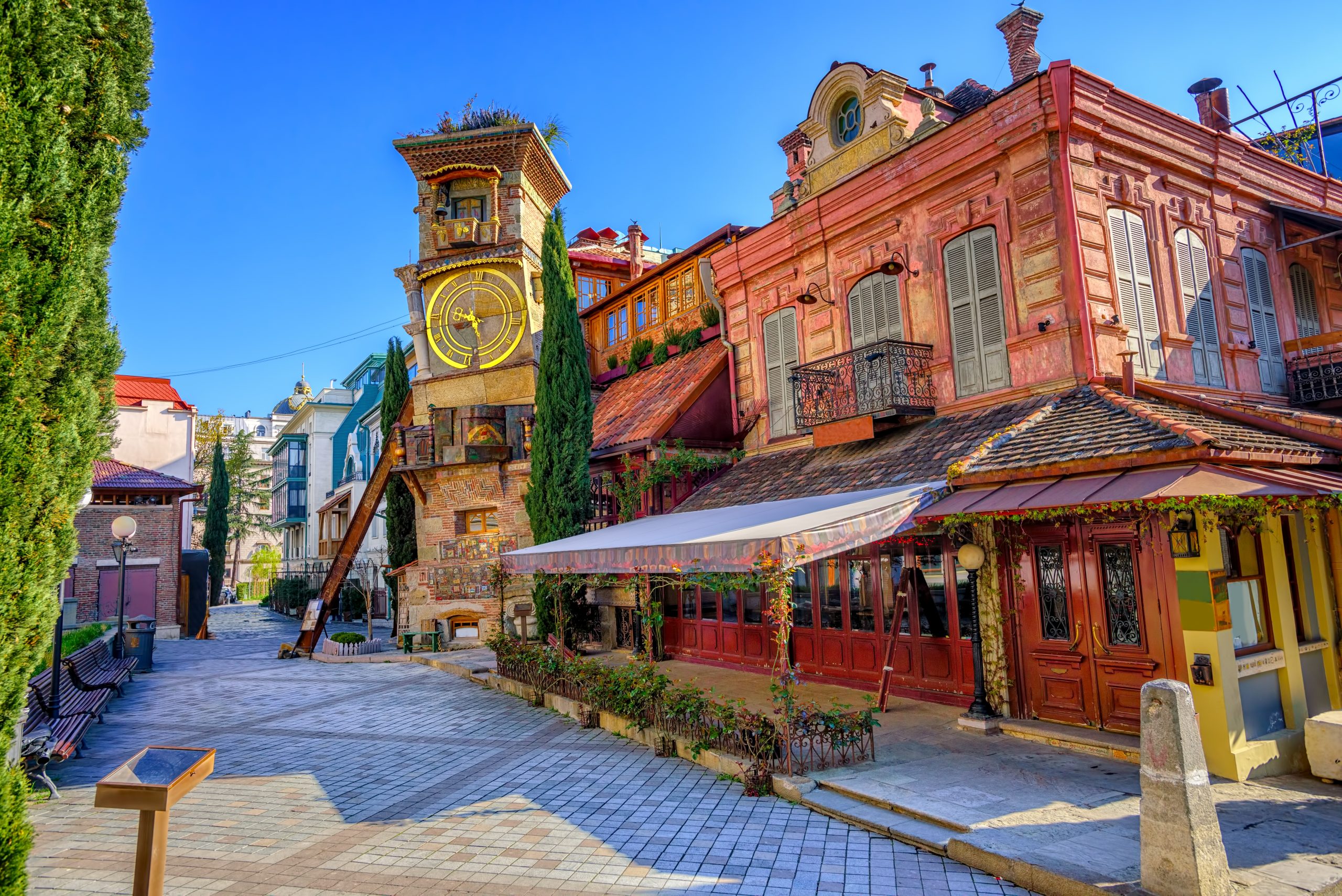
The Old Town in Tbilisi.
Saakashvili’s health is causing concern in the West
On December 14, former Georgian President Mikheil Saakashvili announced that he stopped his hunger strike several hours after announcing it because he received a message from Members of the European Parliament. In the letter, European MEPs urged him to stop the strike “so as not to give an excuse to the relevant services as if I am harming myself.”
Saakashvili also contended that the MEPs had promised to “mobilize all diplomatic efforts to ensure the protection of [his] minimum rights.” “I am not sick because I purposefully did not eat but because I am poisoned,” he said. Saakashvili’s lawyer Shalva Khachapuridze announced earlier that day that the ex-President had begun a new hunger strike after the Special Penitentiary Service and the Vivamedi Clinic claimed today that due to technical reasons, they were unable to connect Saakashvili to his hearing as he has repeatedly requested.
Two days earlier, Eduard Saakashvili, the son of the former president, said at a briefing held with MEPs in the European Parliament in Strasbourg that the Government of Georgia should take the right step and allow Mikheil Saakashvili to be treated abroad. According to him, such a move is necessary not to let his father die in prison or to cause irreparable damage to his health. Following Saakashvili’s announcement of the hunger strike, the Special Penitentiary Service of Georgia posted footage on social media of the imprisoned former president, which shows his condition in different periods at the Vivamedi civilian clinic.
For rejecting the allegations [made by the ex-president’s lawyers over the recent days] about Saakashvili’s aggravated health conditions and due to “high public interest” in the matter, the released footage “clearly” shows Saakashvili’s “simulated actions” to impede the court’s activities, to mislead the public and international partners, the state body said. The Service said the footage “depicted” the state’s attitude toward the former president and the latter’s “abusive and aggressive behavior” towards the medical staff.
The released situation around Saakashvili sparked a new wave of Western criticism. Speaking with media at the National Conference on gender equality, the head of the EU Delegation in Georgia Pawel Herczynski emphasised in relation to imprisoned ex-President Mikheil Saakashvili that it falls on Georgian authorities to “make sure that all his rights are fully respected, his rights as the prisoner but also his rights as the defendant.”
In that context, the Ambassador drew attention to Saakashvili being unable to attend his hearing online on December 14, supposedly due to technical reasons, and underlined, “we sincerely hope that he will be allowed to appear before the court.” He remarked that in the 21st Century, “in a place as advanced as Tbilisi, it is difficult to understand why it was not possible for [Saakashvili] to appear in court.”
While speaking with media at the National Conference on gender equality, the US Ambassador Kelly Degnan emphasised in relation to imprisoned ex-President Mikheil Saakashvili that “the government has a responsibility to ensure that his human rights are respected, that he receives the medical care and psychological care he needs, and that he receives a fair trial.” She also pointed out, “there’s a particular urgency because there is such great concern both domestically and internationally regarding Mr. Saakashvili’s health and welfare… Further delays only increase the questions and concerns regarding his well-being.”
Sources:
- Civil.ge, „Saakashvili Stops Hunger Strike“, https://civil.ge/archives/518747
- Agenda.ge, „Penitentiary service releases footage of ex-pres. Saakashvili’s condition in Vivamedi clinic [VIDEO]“, https://agenda.ge/en/news/2022/4883
- Interpressnews, „Eduard Saakashvili: We should not allow my father, Mikheil Saakashvili, to die in prison – the Georgian Government should take the right step and allow him to be treated abroad“, https://www.interpressnews.ge/en/article/122967-eduard-saakashvili-we-should-not-allow-my-father-mikheil-saakashvili-to-die-in-prison-the-georgian-government-should-take-the-right-step-and-allow-him-to-be-treated-abroad/
- Civil.ge, „EU Ambassador: On Authorities to Ensure Respect for Saakashvili’s Rights“, https://civil.ge/archives/518866
- Civil.ge, “U.S. Ambassador: Government “has a Responsibility” for Protecting Saakashvili’s Rights”, https://civil.ge/archives/518823
Georgia, Azerbaijan, Romania, and Hungary sign “deal” on Black Sea Submarine Electricity Cable project
The leaders of Hungary, Romania, Georgia and Azerbaijan finalized an agreement on December 17 on an undersea electricity connector that could become a new power source for the European Union amid a crunch on energy supplies caused by the war in Ukraine. The agreement involves a cable running beneath the Black Sea that would link Azerbaijan to Hungary via Georgia and Romania.
The deal comes as Hungary, which has lobbied heavily against EU sanctions on Russia for its war in Ukraine, is seeking additional sources for fossil fuels to reduce its heavy dependence on Russian oil and gas.
After implementation, the 1,195 km long cable – with 1,100 km of its length laid underwater – will enable the countries of the South Caucasus and Romania to take advantage of “broadened export opportunities” and also trade in electricity at hourly market prices
Sources:
- SPIKE Justin, GHIRDA Vadim, AP, „Deal reached for new non-Russian power source for Europe“, https://apnews.com/article/russia-ukraine-europe-business-hungary-european-union-7f1d0b67596722fab7d6b0c0a3a3d40e
- Agenda.ge, Georgia, „Azerbaijan, Romania, Hungary sign “deal” on Black Sea Submarine Electricity Cable project“, https://agenda.ge/en/news/2022/4925

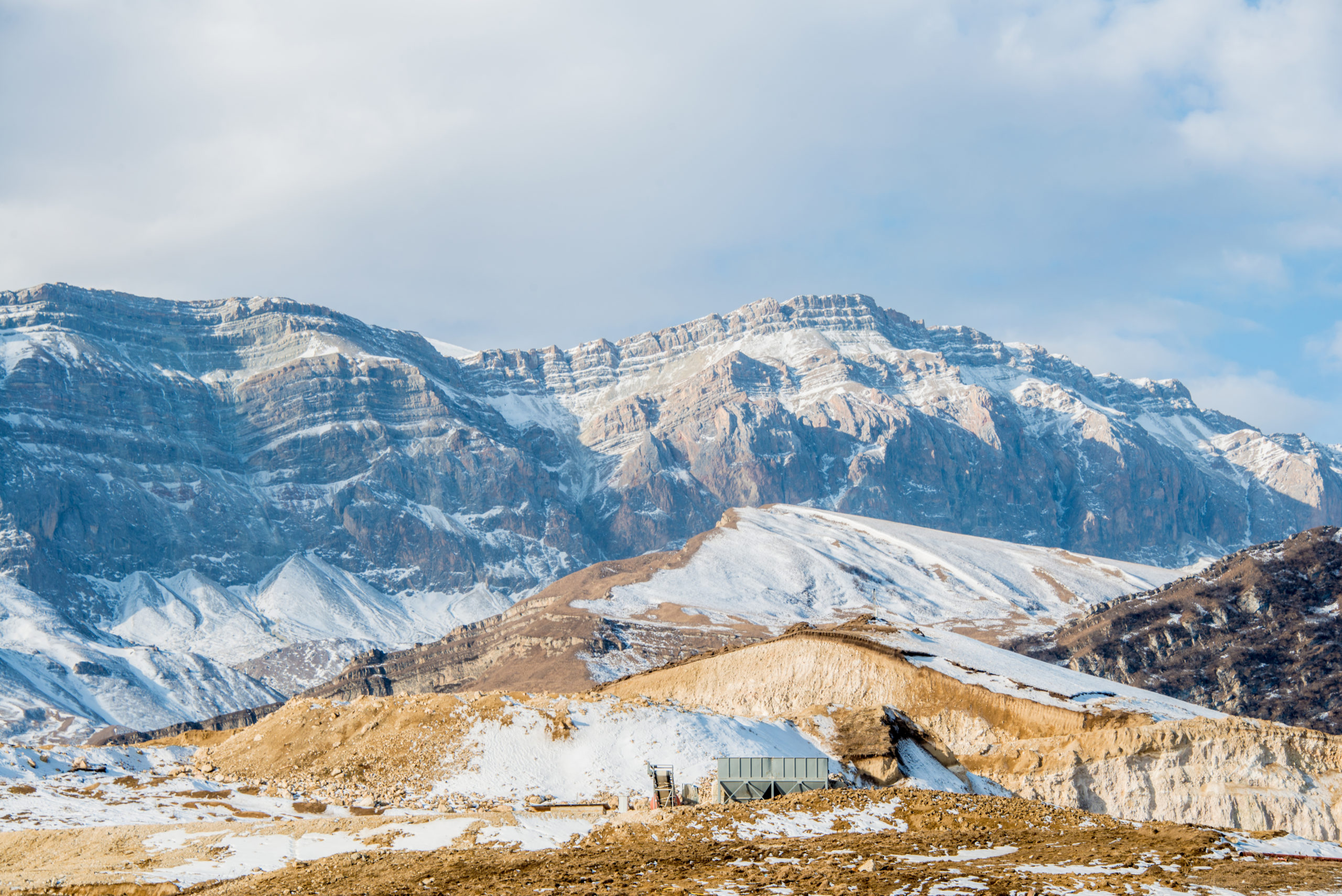
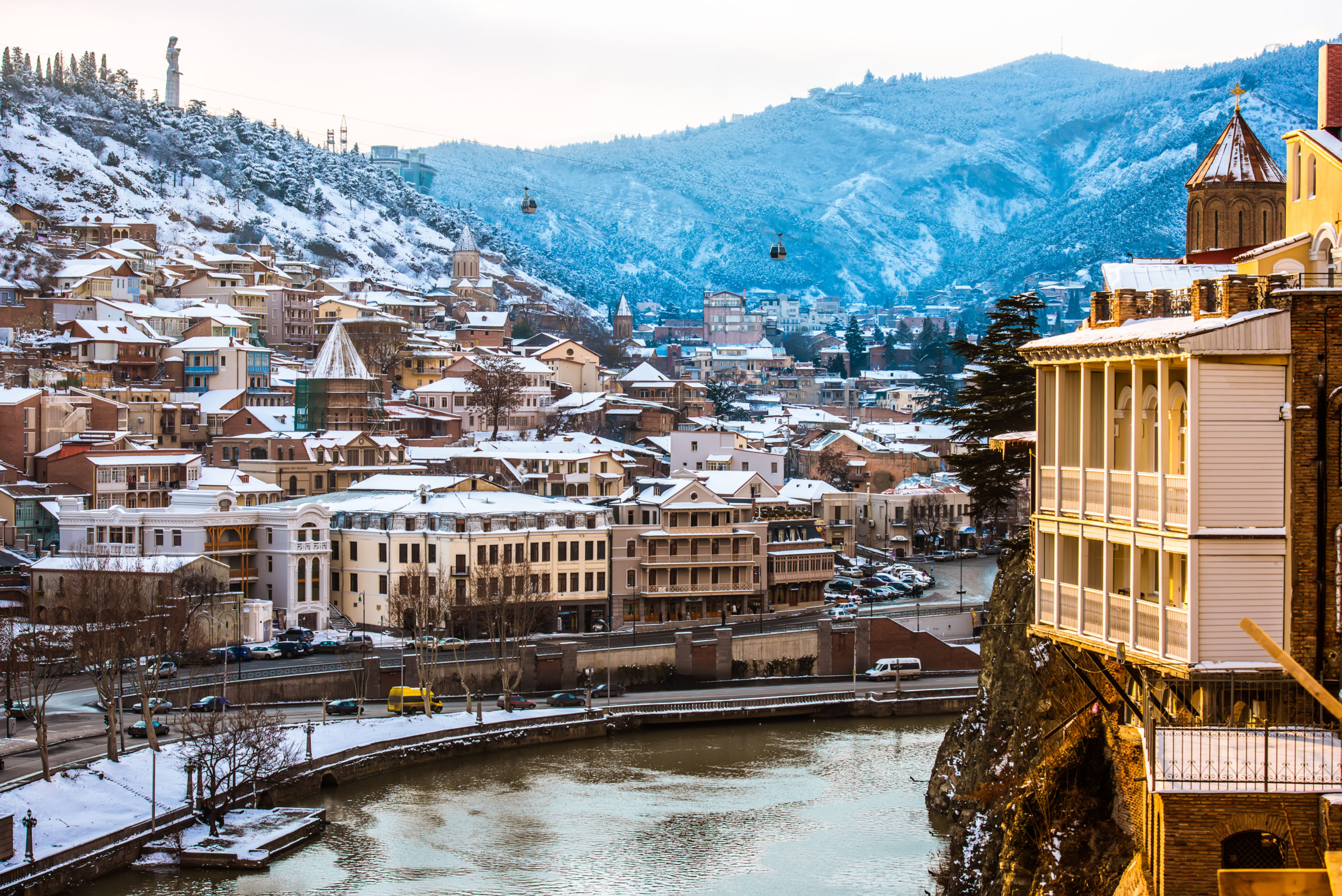
Contact us